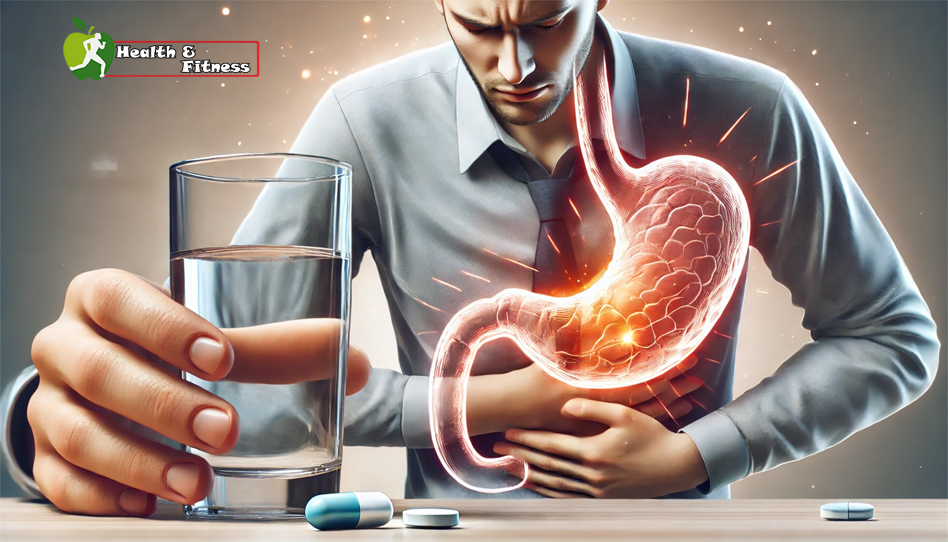Ever felt sick, popped an antibiotic, and then realized your stomach was totally empty? We’ve all been there. You’ve probably heard you should take antibiotics with food. But what happens if you don’t? In this article you will know what happens if you take antibiotics without food ?
This article is here to explore the real deal. We’ll dive into the potential problems of taking antibiotics on an empty stomach. Plus, we’ll give you practical advice to stay healthy. Let’s get started!
Understanding Antibiotics and How They Work
Antibiotics are powerful medicines. They fight bacterial infections. Think of them as tiny warriors, attacking bad bacteria in your body. But how do they actually work?
Types of Antibiotics
There are many kinds of antibiotics. Penicillin is a common one. It stops bacteria from building cell walls. Tetracyclines work differently. They prevent bacteria from making proteins. Macrolides, like erythromycin, also mess with protein production. Each type targets bacteria in its own way.
Absorption and Distribution
When you swallow an antibiotic, it needs to get into your blood. This is absorption. Then, the blood carries it everywhere. Some things can mess with absorption. Food, other medicines, even your own body can impact it. Some antibiotics are absorbed better when you eat. Others don’t care if your stomach is empty.
Potential Side Effects of Taking Antibiotics on an Empty Stomach
Taking antibiotics without food can sometimes cause issues. The biggest problems usually involve your stomach. Let’s look at the possible side effects.
Increased Risk of Nausea and Vomiting

Some antibiotics can irritate your stomach lining. This irritation can lead to nausea. You might even throw up. Food can act as a buffer. It helps protect your stomach from the antibiotic’s harshness.
Stomach Pain and Discomfort
Empty stomachs can make things worse. You might get abdominal cramps. Bloating could happen too. Some people just feel generally uncomfortable. Food helps ease these feelings.
Diarrhea
Antibiotics kill bad bacteria, but they can kill good bacteria too. This can mess up your gut flora. When your gut flora is out of balance, diarrhea is a common result. Probiotics can help with this, more on this later.
Antibiotics That MUST Be Taken With Food
Some antibiotics really need food to work right. Or to avoid nasty side effects. Knowing these is super important.
Specific Antibiotic Examples
Nitrofurantoin is one such example. It’s often prescribed for bladder infections. Food helps your body absorb it better. It also lowers the chance of stomach upset. Another example is Griseofulvin, used for fungal infections. Taking it with fatty food increases absorption.
The Science Behind Food-Dependent Absorption
Why does food matter? Some antibiotics dissolve better with food. Fat can help some drugs absorb. Food slows down how fast the drug goes through your stomach. This gives your body more time to absorb it. In the case of Nitrofurantoin, it has something to do with better dissolving in the stomach when food is present.
Antibiotics Where Food Interaction Doesn’t Matter
Not all antibiotics care about food. Some work just fine no matter what. Here’s what to know.
Specific Antibiotic Examples
Doxycycline is one example. This common antibiotic is used for many things. Lyme disease, acne, and some STIs are treated with it. Food has little impact on how well it’s absorbed. Amoxicillin is another. You can take it with or without food, and it will still work.
Factors Influencing Food Interaction
Why are some antibiotics less sensitive to food? It often comes down to how they are made. Some are designed to be absorbed easily. Their chemical properties allow them to work well, regardless of food.
Maximizing Antibiotic Effectiveness and Minimizing Side Effects
Want to get the most from your antibiotics? Here are some practical tips. These suggestions will help you minimize side effects too.
Reading the Prescription Label
Always read the label! It tells you exactly how to take the medicine. Pay attention to instructions about food. The label might say, “Take with food” or “Take on an empty stomach.” Follow those directions closely.
Timing and Spacing of Doses
Take your doses at the same time each day. Consistent timing helps keep the drug level steady in your body. Space out your doses evenly. Also, ask your doctor about interactions with other medicines or supplements.
Probiotics and Gut Health
Think about taking probiotics while on antibiotics. Antibiotics can kill good bacteria in your gut. Probiotics help replenish them. This can reduce the risk of diarrhea and other gut problems. Talk to your doctor about which probiotics are best for you.
Conclusion
Taking antibiotics the right way is essential. Know whether to take them with food or without. It can make a big difference in how well they work, and how you feel. Always follow your prescription instructions.
When in doubt, ask a healthcare professional. They can offer personalized advice. Make sure to share this article! And lets always prioritize responsible antibiotic practices.



4 Comments
Pingback: Doxycycline Ruined My Life: Learn About Its Side Effects and Risks
gfbftw
Your point of view caught my eye and was very interesting. Thanks. I have a question for you.
Thanks for sharing. I read many of your blog posts, cool, your blog is very good.